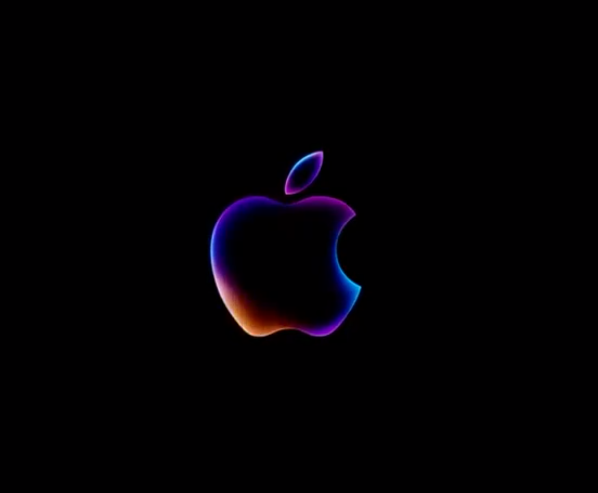They have poured billions into AI and now, couple that with their alliance with ChatGPT, something interesting is about to happen.
Apple is expanding its artificial intelligence (AI) capabilities beyond software, driving the development of next-generation devices. This shift signifies a broader strategy to integrate AI more deeply into its hardware products, aiming to make devices more intuitive and user-friendly. The upcoming iOS 18, macOS 15, and other new operating systems will feature enhanced AI functionalities that streamline daily tasks and deliver relevant information proactively.
Historically, Apple has excelled by combining high-quality hardware and software with services like the App Store and iCloud, updating its software annually and emphasizing app usage. This model encourages consumers to invest in high-capacity devices, as most software is installed locally rather than cloud-based. However, as the tech industry leans more towards AI, Apple recognizes the need to evolve. AI is designed to perform tasks autonomously, reducing the need for users to navigate through apps. This shift demands more frequent software updates and a departure from the annual update cycle.
🚨 NEW Apple WWDC24 teaser just dropped!
Loading AI Summer $RNDR $AAPL $NVDA 🌞 https://t.co/J5fv51r1Km pic.twitter.com/OqmRue053N
— MachineAlpha ⭕️ (@Machine4lpha) June 3, 2024
Apple’s future devices will better utilize voice control and provide information contextually. This evolution will see Apple transition from a hardware-software-services approach to a hardware-AI-cloud model. The iPhone 16 series will mark a step in this direction, with all models supporting the full range of Apple’s new AI features, unlike the current iPhone 15 line, where only the Pro version offers comprehensive AI capabilities. These features will be partially cloud-based, potentially driving a surge in iPhone sales as users with older models upgrade to access the new functionalities.
Apple WWDC 2024 Live Updates: Watch Apple unveil its next big thing ‘Apple intelligence’, iOS 18, new, improved AI Siri, and more https://t.co/ndopQdyzpk #cloud #socialmedia pic.twitter.com/7fb5rHXHFZ
— Express Computer (@ExpComputer) June 10, 2024
Looking ahead, AI will enable innovative hardware such as home robotics, augmented reality (AR) glasses, and smarter AirPods. For instance, Apple is developing an Amazon Astro-like robot for home use and has discussed the possibility of humanoid robots. These devices will require advanced AI to navigate environments and perform tasks. Additionally, a revamped Siri could play a central role in controlling these future robots, offering more precise and sophisticated voice interactions.
The Vision Pro, already utilizing AI for certain functions, foreshadows the capabilities of future AR glasses and camera-equipped AirPods. These devices will be able to perceive their surroundings and provide users with relevant information visually or audibly. New health features, like AI-powered health coaches and noninvasive glucose monitoring, will also heavily rely on AI.
The future of AI glasses is normal looking, light weight and affordable – meet Frame, AI Glasses by @brilliantlabsAR
It is shipping to hackers and creators already. Frame is open-source platform with mic, camera, AR display. It leverages your phone (connectivity & audio) and… pic.twitter.com/mRcCZBglHX
— Sander Saar (@sandersaar) June 7, 2024
To achieve these advancements, Apple must accelerate its work on large language models, the foundation of generative AI, to stay competitive. Falling behind in AI development could impact Apple’s core business of device manufacturing. As Apple prepares for its Worldwide Developers Conference (WWDC), significant announcements are expected, including details on iOS 18, macOS 15, and new AI features. Additionally, an app for managing passwords and insights into Apple’s partnership with ChatGPT owner OpenAI are anticipated.
The Vision Pro’s international launch is imminent, with plans to introduce the device in several countries following WWDC. Despite challenges in becoming a mainstream product, the Vision Pro is seen as a stepping stone towards more accessible AR devices, like potential $1,500 AR glasses. Apple’s retail employees from various countries are receiving training for the Vision Pro launch, indicating a coordinated international rollout.
Thread: Apple WWDC 2024 – What to Expect from Apple’s AI Unveiling
1. Generative AI Enhancements Apple is anticipated to introduce new generative AI features across its ecosystem, significantly enhancing the capabilities of Siri. This includes more advanced natural language… pic.twitter.com/ZIvQRBCsbI— Wallstreet Journal (@wallstreetkrant) June 10, 2024
In other updates, Netflix will cease support for its app on older Apple TV models from 2010 and 2012, which lack an App Store-like updating process. This change affects the second- and third-generation Apple TVs, prompting users to upgrade to newer models.
Additionally, Dexcom’s G7 continuous glucose monitor now pairs directly with Apple Watch in the US. This update allows users to access live glucose data on their Apple Watch via a new app, without needing an iPhone. This feature is particularly beneficial for those who prefer to leave their phones behind during activities like walking.
Key Points:
i. AI Integration and Future Devices: Apple is expanding its AI capabilities beyond software, aiming to integrate AI more deeply into its hardware products to make them more intuitive and user-friendly, with plans for innovative hardware such as home robotics and augmented reality glasses.
ii. Shift in Strategy: To keep pace with AI advancements, Apple will transition from its traditional hardware-software-services approach to a hardware-AI-cloud model, necessitating more frequent software updates and a departure from the annual update cycle.
iii. iPhone 16 and AI Features: The upcoming iPhone 16 series will support the full range of Apple’s new AI features, with functionalities delivered partly via the cloud, potentially driving a surge in upgrades from users with older models.
iv. Vision Pro and AR Developments: The Vision Pro’s international launch is imminent, seen as a precursor to more accessible AR devices like potential $1,500 AR glasses, with retail employees worldwide being trained for its rollout.
v. Netflix and Dexcom Updates: Netflix will cease support for its app on older Apple TV models from 2010 and 2012, and Dexcom’s G7 continuous glucose monitor now pairs directly with Apple Watch in the US, allowing users to access live glucose data without an iPhone.
RM Tomi – Reprinted with permission of Whatfinger News



